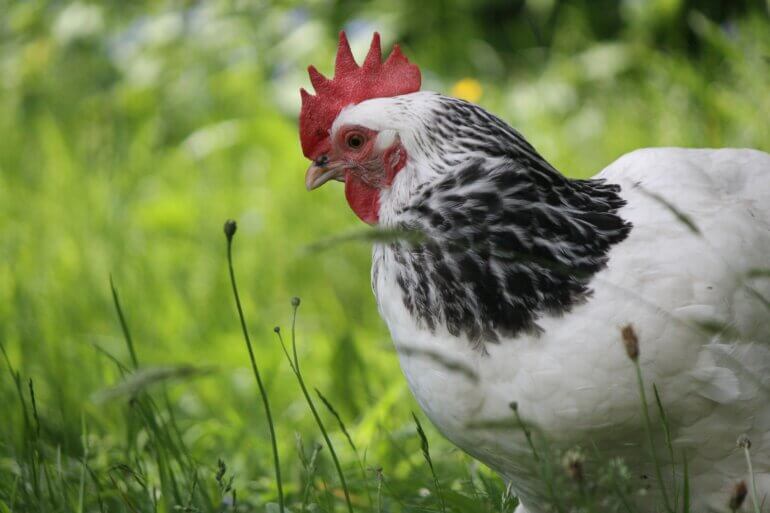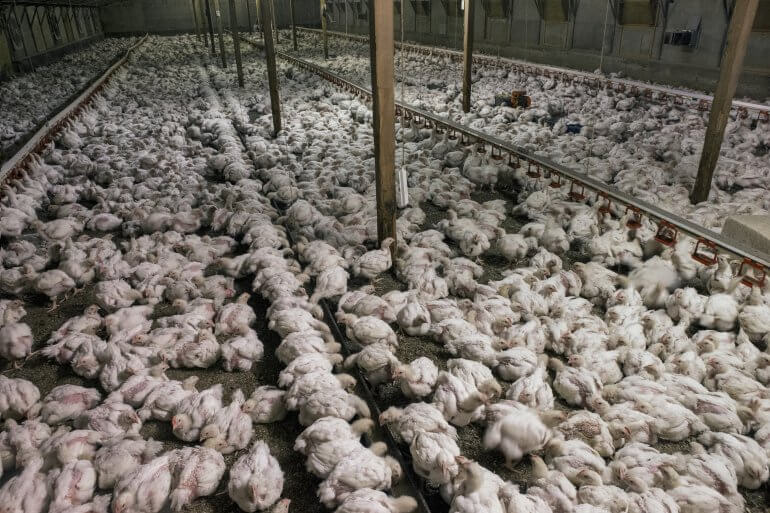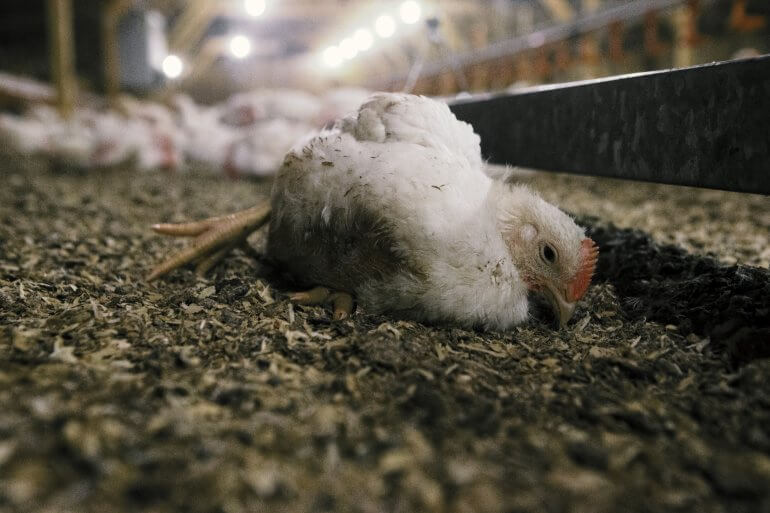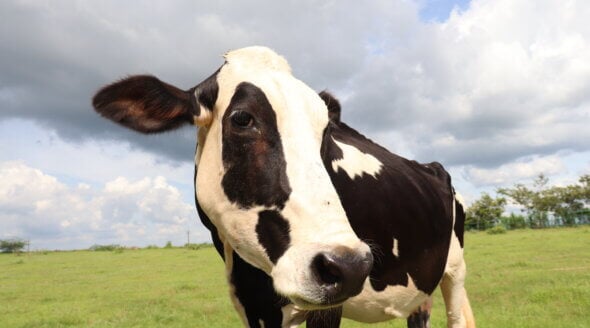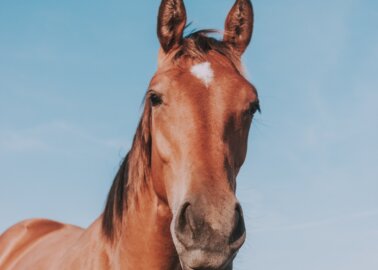Great News: Intensive Nottinghamshire Chicken Farms Plans Rejected!
Great news! Intensive chicken farm plans in Owthorpe, Nottinghamshire, were rejected by Rushcliffe Borough Council after PETA sent a letter opposing the appalling proposal.
If plans had been approved, 190,000 chickens would have been kept in cramped sheds for around 48 days before being sent to slaughter. That’s almost 1.5 million birds every year.
The Cruelty of Chicken Farming
Each of the 1.5 million birds per year would have been have been forced to spend their short lives in barren, dirty sheds. Bred to have large, heavy upper bodies, they may have suffered from severe health problems, including deformed or arthritic legs.
Chickens can live for up to 12 years, but at the proposed facility, they would’ve been sent to slaughter at only 5 to 6 weeks old. At the end of their unnaturally short lives, they would’ve been packed into crates to be transported to an abattoir, where they’d face a throat-cutting machine before being plunged into scalding-hot water.
Chickens are inquisitive, intelligent animals and can be playful and sociable – each one has a unique personality. It’s horrific to treat gentle, sensitive birds like nothing more than a collection of “nuggets”, wings, and “drumsticks”.
Reducing the Risk of Avian Flu
The UK is in the midst of the worst avian flu outbreak in the country’s history. Avian influenza has recently been detected in a worker on a chicken farm in Spain, and since 1 October 2022, there have been six cases of highly pathogenic H5N1 avian influenza in England. Facilities like this one are breeding grounds for disease, and approving such proposals would have fuelled the spread of avian flu.
Farming Chickens Contributes to the Climate Crisis
According to the United Nations, animal agriculture is “one of the top two or three most significant contributors to the most serious environmental problems, at every scale from local to global”. Refusing this proposal isn’t just great news for chickens – it’s also great for the planet.
Neighbours’ Nightmare Avoided
Intensive farms don’t just come with an array of ethical and environmental issues, they also disrupt the lives of local residents. The stench of built up waste, the sound of thousands of birds screeching in misery, huge buildings disrupting the scenic country views, the health hazards of ammonia pollution, increased traffic from dozens of lorries carting baby birds and food to the site or slaughterhouse – these are some of the issues that locals have to deal with when farms like this one are approved by councils.
Help Oppose Future Farm Proposals
PETA regularly opposes plans for intensive farms across the UK. To hear of new petitions, be sure to subscribe to our e-news and join our action team:

